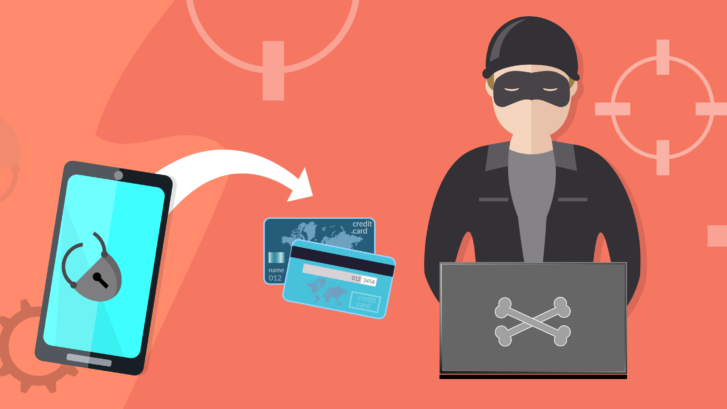We all understand that identity theft is a constant threat to individuals. Most of us remain skeptical of any phone calls, emails, or text messages requesting personal information. We know that once the bad guys get a hold of our ID numbers and passwords, they can gain access to our accounts. That’s when you know you’re in deep trouble. Staying vigilant is especially necessary in desperate times like these when unemployment is booming and a virus ravages communities at exponential rates. It should be no surprise, then, that small businesses — the backbone of the American economy — face similar vulnerabilities and attacks.
In this article, we cover:
- The rise of business identity theft and why your security is critical.
- What to watch for so your small business doesn’t get compromised.
- The benefits of a second phone line and robocall prevention.
It may be striking to learn that in 2019, there was a 100 percent increase in business identity theft. However, the rise in 2020 so far has already hit a whopping 258 percent. Perpetrators focus their efforts on acquiring illegal access to relief and recovery funds, such as those from the Paycheck Protection Program (PPP) and the Economic Security Act (CARES Act). While a vast majority of relief funds have gone to businesses in need, there does remain a small share of fraudsters taking advantage of the system. In fact, scammers even defraud states and the federal government by filing unemployment insurance claims and applying for pandemic assistance loans with the Small Business Administration.
The activity of one group of scammers sounds all too familiar. In this instance, the scammers target small businesses throughout the United States that are either active-and-dormant or inactive due to the COVID-19 pandemic. They find the names of the executive officers and/or owners of these vulnerable businesses and acquire their social security and tax ID numbers through the dark web. Next, using fake contact information, they file false documents with the Secretary of State’s office in the names of those compromised individuals. This is all done so they can appear legitimate when applying for new lines of credit with stores like Home Depot and Staples, and eventually, go on a shopping spree.
As you’d assume surmise, businesses have far more borrowing power compared to individuals. This is a big-time scam, folks.
Four Fraudulent Business Activities to Monitor
To protect your small business, analytics firm Dun & Bradstreet recommends closely monitoring your business profile. Specifically, keep an eye on your contact information, your accounts, and your inquiries. The main takeaway here is to pay attention to any activity you do not recognize. New accounts or credit inquiries originating from a business with your name that you didn’t initiate may be a good indication that criminals have begun to or already have infiltrated your identity. An early sign of this kind of activity is evident in unfamiliar contact names, phone numbers, email addresses, websites, and location information appearing on your business records. If you begin to see that, take action right away.
How a Second Phone Line, Robocall Prevention Can Keep Your Business Safe
How do you prevent fraudsters from infiltrating you and your small business? We recommend securing your personal information. As mentioned earlier, scammers are able to falsify documents using personal information gleaned from the dark web. That means it’s imperative for you as a business owner or executive to keep your information airtight.
A second phone number is critical in separating business matters from your personal life. As unimportant as it may seem (“Who cares if I use my cell phone for a few work calls?”), it’s those weak links that provide fraudsters with the vulnerability they seek. A second phone number keeps your personal number unlisted and your identity anonymous. With YouMail, your second phone line provides full calling and texting right from the YouMail iPhone app.
You should also proactively prevent robocalls to your business line. Scammers love robocalls because it’s a cheap, easy way to hit millions of would-be victims with a constant barrage of attacks. One slip-up, and you could be compromised. And once you’re compromised, so too is your business. YouMail has stopped over 1 billion robocalls from being made, and counting. Our Robocall Index categorizes and mitigates scams by blocking them at the source. When a known robocaller rings, patented YouMail technology automatically compares the caller against our library of more than a million “bad” numbers, and if there’s a match, we play a “this number is not in service” greeting that nixes future attempts. We’ve answered well over 10 billion calls to date.

YouMail specializes in furnishing entrepreneurs and small business owners with second phone lines and robocall prevention, among a vast number of other helpful benefits. We have a plan tailored for your needs that will help you stave off small business identity theft and avoid being another statistic during these challenging times.


These are some fantastic tips. I have implemented some of them already and I see several others that I will do thanks for the tips. Do you have any more for a new business?